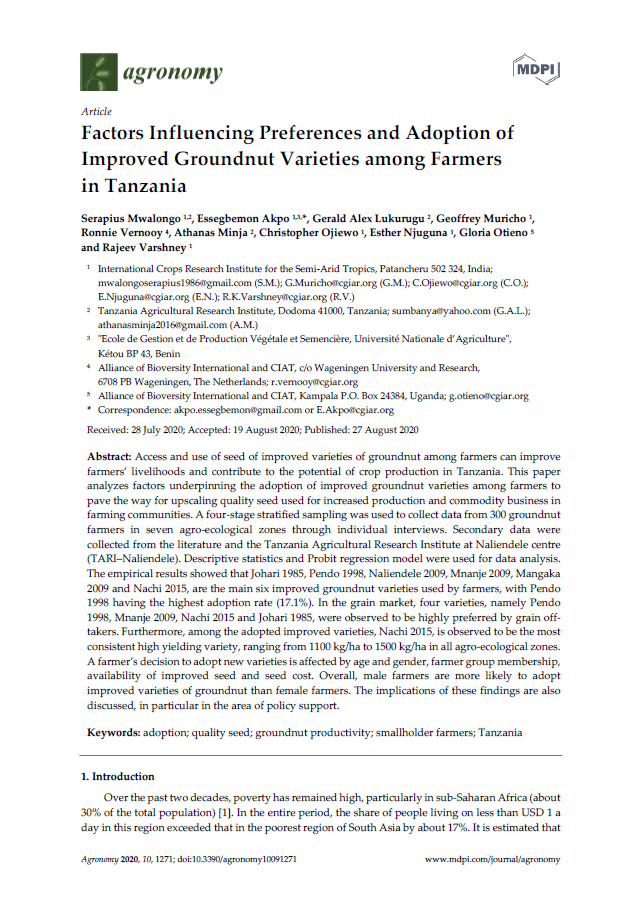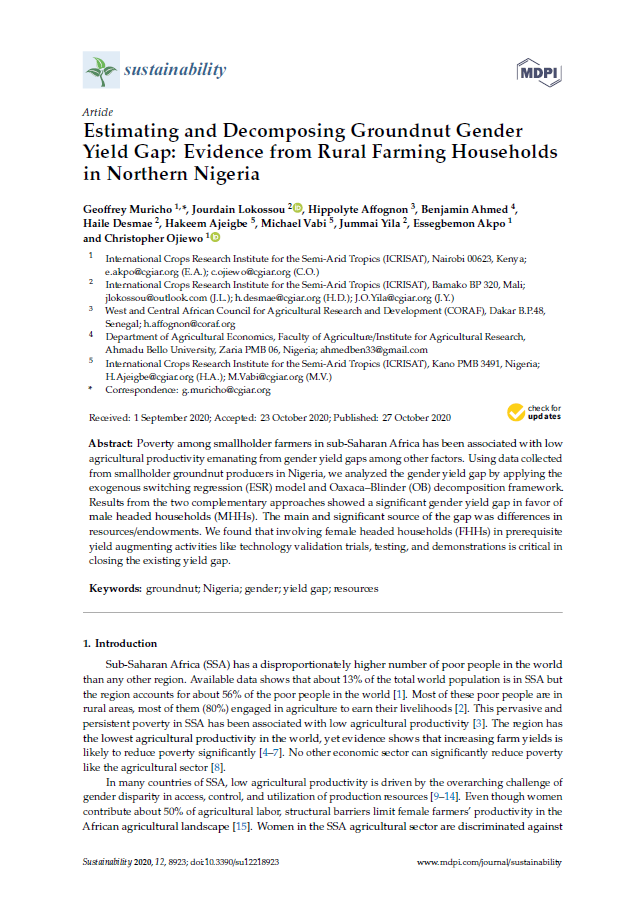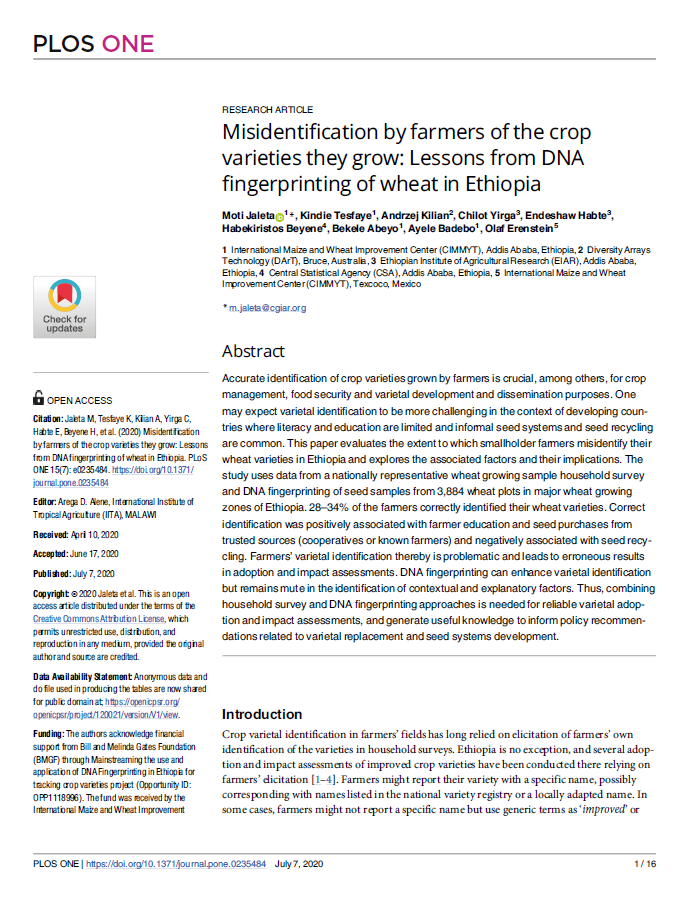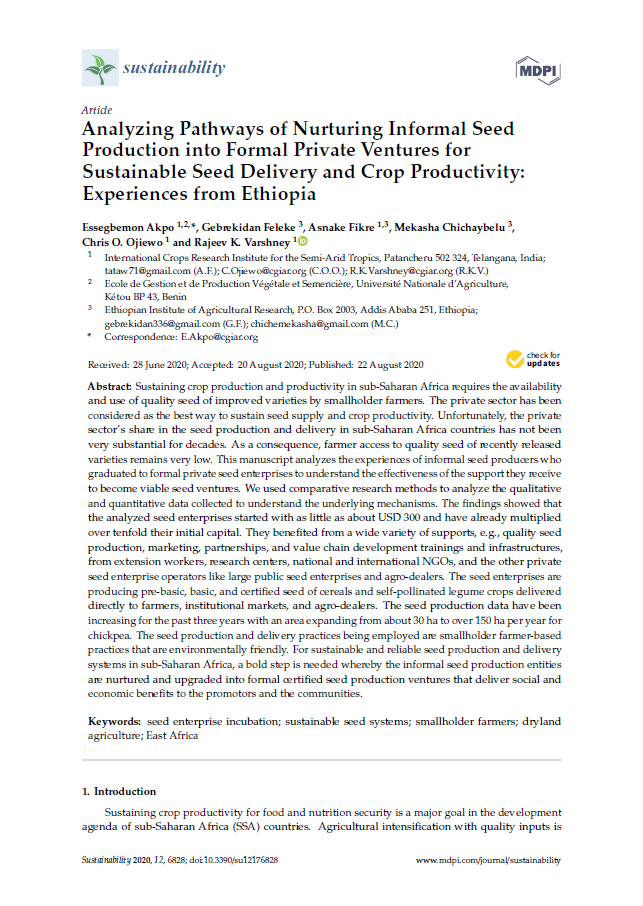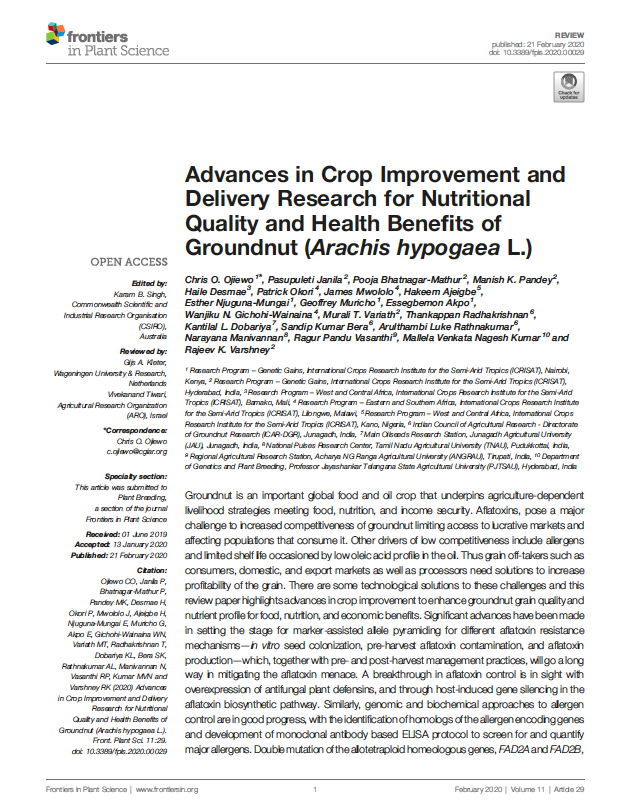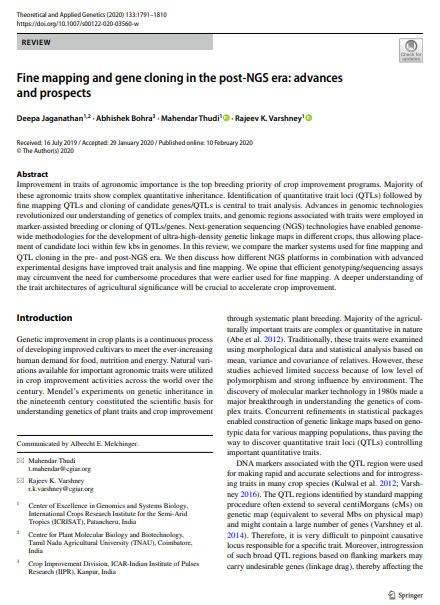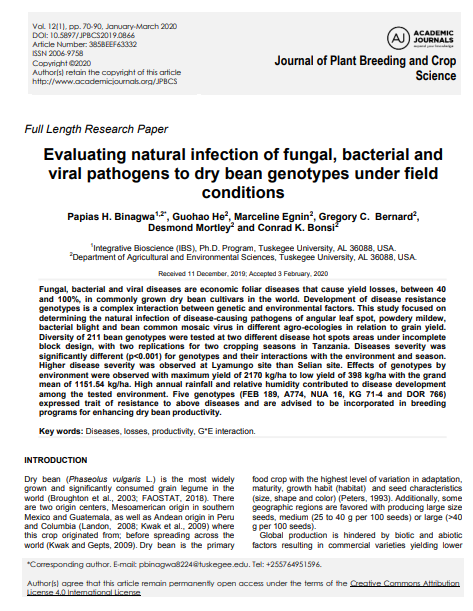Factors Influencing Preferences and Adoption of Improved Groundnut Varieties among Farmers in Tanzania
This paper analyzes factors underpinning the adoption of improved groundnut varieties among farmers to pave the way for upscaling quality seed used for increased production and commodity business in farming communities.
Project: TLII, TLIII
File type: PDF (374.11 KB)
Estimating and Decomposing Groundnut Gender Yield Gap: Evidence from Rural Farming Households in Northern Nigeria
Using data from smallholder groundnut producers in Nigeria, we analyzed the gender yield gap by applying the exogenous switching regression model and Oaxaca–Blinder decomposition framework. Results showed a significant gender yield gap in favor of male headed households.
Project: TLII, TLIII
File type: PDF (284.92 KB)
Misidentification by farmers of the crop varieties they grow: Lessons from DNA fingerprinting of wheat in Ethiopia
This paper evaluates the extent to which smallholder farmers misidentify their wheat varieties in Ethiopia and explores the associated factors and their implications.
Project: TLII, TLIII
File type: PDF (555.48 KB)
Analyzing Pathways of Nurturing Informal Seed Production into Formal Private Ventures for Sustainable Seed Delivery and Crop Productivity: Experiences from Ethiopia
This manuscript analyzes the experiences of informal seed producers who graduated to formal private seed enterprises to understand the effectiveness of the support they receive to become viable seed ventures.
Project: TLII, TLIII
File type: PDF (512.55 KB)
Advances in Crop Improvement and Delivery Research for Nutritional Quality and Health Benefits of Groundnut (Arachis hypogaea L.)
A review paper highlighting advances in crop improvement to enhance groundnut grain quality and nutrient profile for food, nutrition and economic benefits, focusing on host-induced gene silencing and transgenic approaches, high oleic groundnut varieties, research on groundnut allergens, exploitation of diploid and tetraploid genome sequences, and the delivery of advanced genetics to smallholder farmers.
Project: TLIII
File type: PDF (1.54 MB)
Fine mapping and gene cloning in the post-NGS era: advances and prospects
In this review, the authors compare the marker systems used for fine mapping and QTL cloning in the pre- and post-NGS era. They then discuss how different NGS platforms in combination with advanced experimental designs have improved trait analysis and fine mapping.
Project: TLIII
File type: PDF (1.96 MB)
Impact of improved common bean varieties on household food security on adopters in Tanzania
This paper evaluates the impact of improved common bean varieties on food security using per capita food consumption expenditure and diet diversity score.
Project: TLIII
File type: External site
Determining grain seed micronutrient contents (Iron and Zinc) cooking time for selected dry bean cultivars
This study identified dry bean cultivars with enhanced Fe and Zn concentration levels and fast cooking time from among 200 cultivars.
Project: TLIII
File type: PDF (775.95 KB)
Evaluating natural infection of fungal, bacterial and viral pathogens to dry bean genotypes under field conditions
This study focuses on determining the natural infection of disease-causing pathogens of angular leaf spot, powdery mildew, bacterial blight, and bean common mosaic virus in different agro-ecologies in relation to grain yield.
Project: TLIII
File type: PDF (762.40 KB)
Genome-Wide Detection of SNP Markers Associated with Four Physiological Traits in Groundnut (Arachis hypogaea L.)
This study uses DarTSeq markers to analyze genome-wide marker-trait association for some physiological traits and to determine the magnitude of linkage disequilibrium (LD).
Project: TLIII
File type: PDF (947.14 KB)


